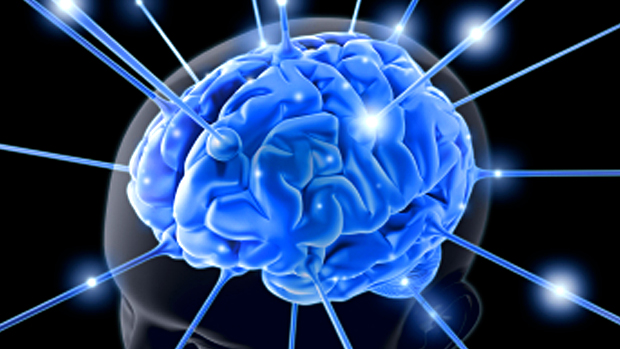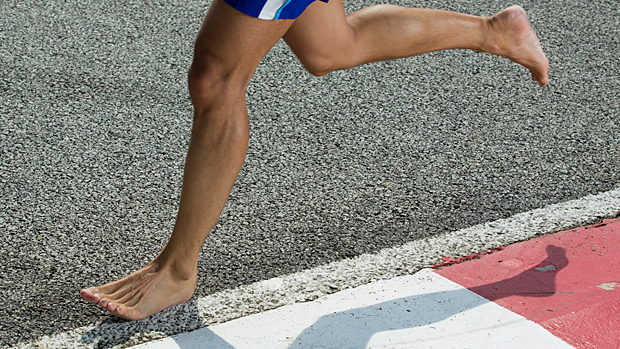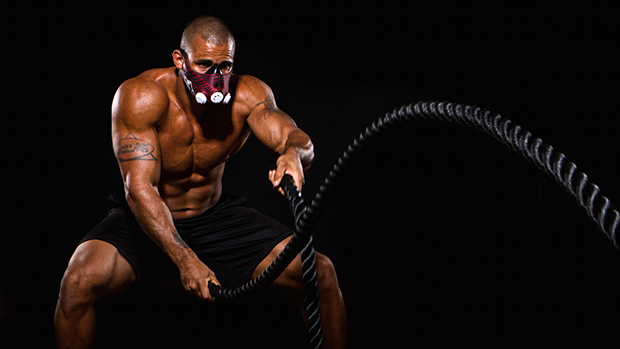It's foundational. Without it, nothing else is possible.
A few rare people, through a combination of nature and nurture, develop it on their own. And because of that, they're unstoppable. The rest of us have to work to ignite it, to develop it, and to hone it.
What am I talking about? Mind power.
In a previous article, I wrote about the four stages of mental mastery. In one of those stages (conscious incompetence) the person knows he's doing something wrong with his training, his diet, or his lifestyle, but he can't seem to correct it.
This isn't an issue of ignorance or stupidity. It's also not an issue of physicality, though it may manifest itself as something tangible (picking up a french fry and sticking it in your mouth, for example). No, this is a psychological issue – a mental thing. Much like the nervous system runs the muscles, the mind runs the entire body.
Whether the issue is with putting the right foods into your mouth or training with shit-a-kidney intensity in the gym, it all starts in your head. And that's why I write so much about the mental side of the game.
In this article, I've randomly chosen three psychological concepts or ideas that can be applied to your physique transformation goals. Let's dive right in and get cerebral!
Head Game 1 – Pull Your Trigger
Elite athletes use a variety of tricks to trigger a mental state conducive to optimal performance. They didn't learn these tricks in books or from a sports psychologist; most of them use these mental tools innately. It's part of their gift.
Here's a trick to help you "manually" install your own trigger. This can be used just about any time you want to be at your best, whether it's setting a PR in the gym or resisting a food that would sabotage your dieting goals.
- Relax and get ready to program your mind. Lie down somewhere quiet and get comfortable.
- Close your eyes and visualize your goal: a big bench press, defined abs, massive biceps, whatever.
- Now think of a time when you were at your best, a time when you were on top of the world or had achieved something that made you feel great. Really visualize this. Remember the details: the sights, sounds, and smells. Remember how it all felt. Feel the rush of success.
- Think of a code word to associate with your new goal and this great feeling of achievement. Choose a word that's meaningful to you.
- Now think of an image to associate with this feeling of victory. Any mental picture will do.
- Choose a physical trigger. This can be a place on your body to touch or a physical action. For example, touch your wrist.
- Now it's time to bring all these triggers and anchors together. In your relaxed state, think of your goal, then trigger the feelings of achievement and confidence by saying your code word, getting the powerful image in your mind, and touching your wrist or performing your chosen physical action. After you do this, open your eyes, breathe deeply, and see if you can feel the surge in confidence and other reactions that will help you reach your goal. Repeat this step several times until the association is made.
- Use your optimal performance triggers when you need them in real life.
Here's how I put all this together for myself. Through practice I've been able to generalize my optimal performance triggers. I use these same triggers for everything, from writing an article when I'm struggling, to psyching up for a workout when I'm feeling distracted. I also use them before I give speeches and make presentations.
My physical trigger is two consecutive hand claps, the second harder than the first. My code word is "rise." My image is of my feet rising off the ground.
With this combination I can put myself into a focused, alert, and confident state. Come up with your own triggers, practice them, and you'll be able to do it too.
Head Game 2 – Eating With Your Mind
Guess what? Fat people don't really like eating. Seriously, according to mental health experts who work daily with the obese, most fat people take no real pleasure in the foods they eat. They consume mindlessly, hardly even tasting the foods.
There's something we can all learn from this, even if we're already lean and just trying to stay that way, or if we're trying to get super shredded for summer.
Most people don't focus on the food that's in their mouths. Instead they focus on the next bite. That's one problem that the proponents of something called "mindful eating" try to fix.
Another problem is eating while working, watching TV, driving, or being otherwise occupied. This leads to inattentively shoveling in food and not really tasting or savoring it. That causes over-consumption of calories, plus you miss the satiety or fullness signals, leading to even more overeating.
So how do you mindfully eat? Experts on the subject suggest you first rate your feeling of hunger on a scale from 1 (starving) to 7 (stuffed). Now look at the food you're eating. Notice the colors and textures. Take a small bite. Put down your fork and chew slowly, savoring the bite. (In clinical settings, chronic overeaters are taught to savor and slowly eat a single raisin as practice.)
Stop eating when you reach about a 5 on your hunger scale. Remember, it takes 20 minutes for the body to send the proper "full" signals. Stop at 5 and you'll feel like a 6 or 7 in about 20 minutes.
Other mindful eating tips:
- Turn off the TV during meals. No eyes-glazed-over, zombie-mode eating.
- Don't eat sitting at the computer.
- Avoid eating out of large size containers. You'll consume more without even realizing it or relating it to your actual feeling of fullness.
- Don't use food as a reward.
- Don't clean your plate if you're already satisfied. (We won't tell your mommy.)

With practice, mindful eating can also help you see the difference between true hunger and a craving triggered by something other than an empty stomach. It's been used successfully in studies to help binge eaters curb their problem, plus it actually helps you to truly enjoy the foods you eat, even the healthier ones.
On a related note, mindful eating can be forced by doing the Velocity Diet. After 28 days of mostly liquid meals, solid healthy foods become tastier and more filling, while binge eating (now the number one eating disorder in North America) can be curbed or cured entirely.
Head Game 3 – Tapping Your Inner Alpha Male
The alpha male: the dominant male in the pack, the leader, the highest ranking dude in the social order. Men want to be him, women want to be with him.
But what makes a man the alpha male? Well, probably a lot of things, both biological and social. But here's one trait from the mental side of the equation that can be developed and honed: the alpha male is self-validated.
In other words, the alpha male is self-confident and doesn't have a strong need for external approval. He's validated by himself; he knows his worth and doesn't come off as needy. He doesn't constantly seek approval from others like lesser males do. He just doesn't need it.
The alpha male isn't an egotistical jerk, just confident. If you can become self-validated, then this inner power and confidence will exude from you. Others will notice, and they will follow.
The self-validated male easily steps outside of his comfort zone. He takes positive risks and lives life in a more engaged manner. His idea of himself isn't formed by the opinions and approval or disapproval of others.
To illustrate this last point, here's a line from The Fountainhead describing a minor character:
"There was no such person as Mrs. Wayne Wilmot; there was only a shell containing the opinions of her friends... "
Great line, and The Fountainhead does an excellent job of defining the self-validated male through the character of Howard Roark. Read it if you're not grasping the concept.
So, how does one become self-validated? That's beyond the scope of this article, but the first step is simple awareness of the trait.
Tomorrow, go through the day aware of how you allow other people to determine your worth and your mood. Are you an empty vessel being involuntarily filled with the opinions and influence of others? Or are others seeking your validation?
Think about it. Be aware. Work on the inner self and the outward self will also improve, and that leads to life improvement. And isn't life improvement at the root of all this training and nutrition stuff? I think it is.
Play the Game... and Win
The mental instillation of an optimal performance trigger, eating mindfully, enhancing alpha male characteristics... What do these have in common? Not much, except that they're all part of the mental game, and I believe the mental game is crucial to success both in and out of the gym.
Play the game. Win the game.




